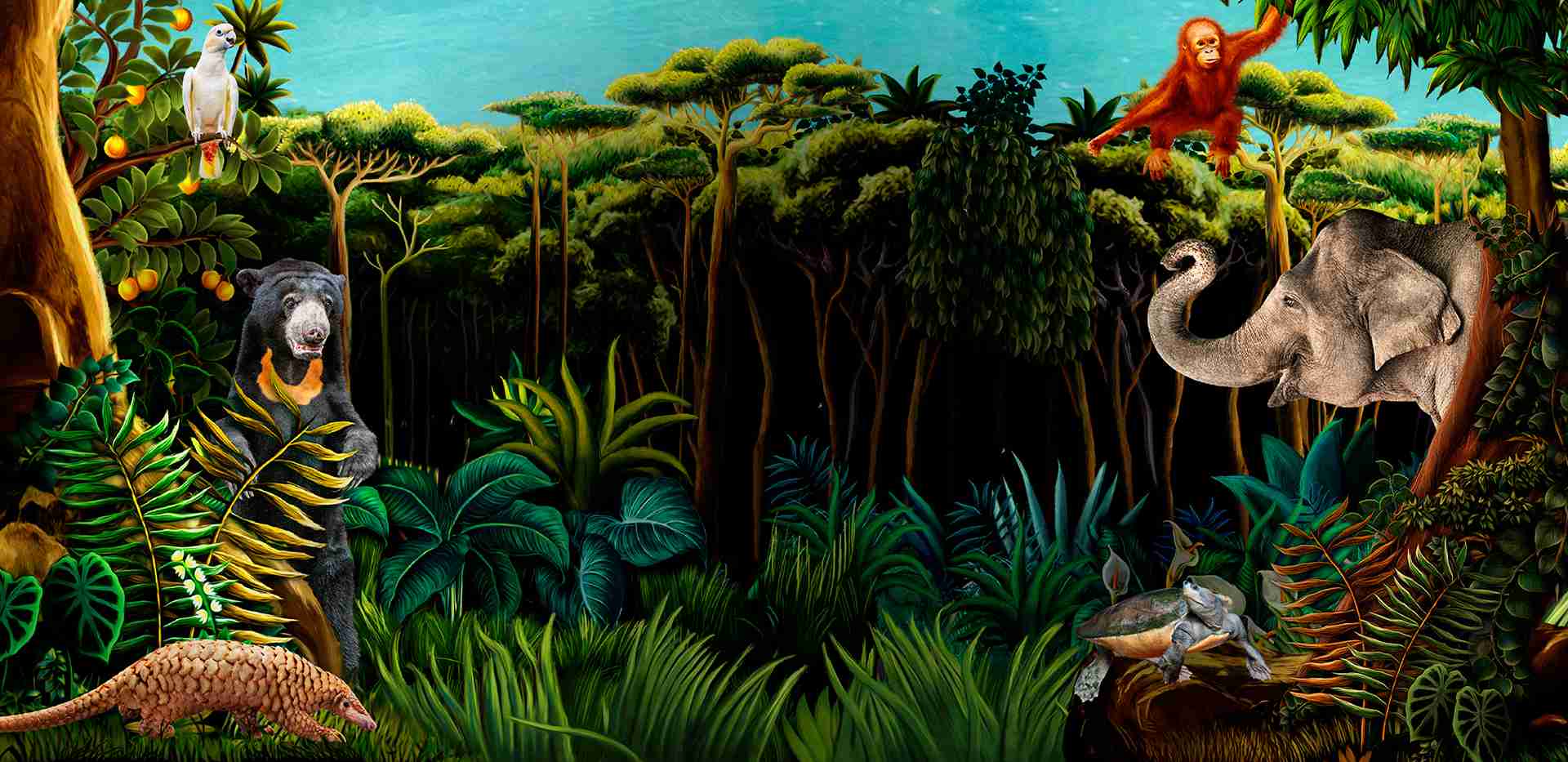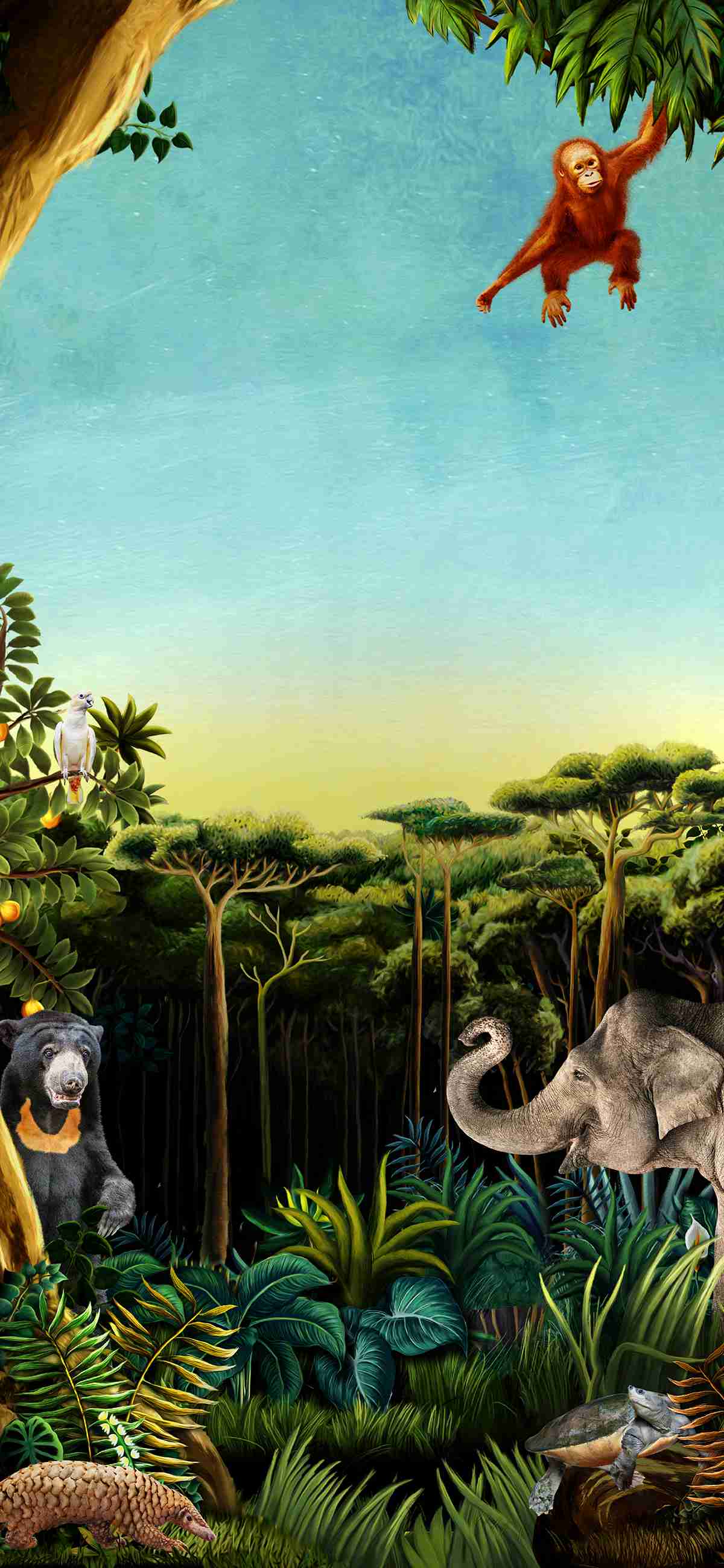Giant Pandas Kai Kai and Jia Jia to call Singapore home for another five years
.jpg)
Well-loved Giant Panda pair Kai Kai (top) and Jia Jia (bottom) will continue as ambassadors for their species at Singapore’s River Wonders for the next five years.
Photo credit: Mandai Wildlife Group
.jpg)
Well-loved Giant Panda pair Kai Kai (top) and Jia Jia (bottom) will continue as ambassadors for their species at Singapore’s River Wonders for the next five years.
Photo credit: Mandai Wildlife Group
Kai Kai and Jia Jia, who turn 15 and 14 years respectively this month, are favourites at River Wonders, and even more so with their newfound status as parents. Their mating attempts have captured the hearts and minds of Singaporeans, and the arrival of the nation’s first panda cub Le Le on 14 August 2021 has brought much cheer and joy.
"China and Singapore have established a close working relationship over the past 10 years of collaboration in panda conservation and research, with excellent results from the birth of a panda cub, the publication of more than 30 research papers, to three rounds of technical exchanges in wildlife management between Chinese and Singapore experts, and public outreach to almost 400,000 people. All these have strengthened the understanding and friendship between both countries, and we hope to achieve even greater results in our next five years of partnership,” said Wu Minglu, Secretary General of CWCA at the signing ceremony.
Mike Barclay, Group CEO of Mandai Wildlife Group said, “Mandai Wildlife Group is delighted to deepen our partnership with China Wildlife Conservation Association and continue to contribute to conservation efforts for the Giant Panda species. We have journeyed with Kai Kai and Jia Jia for a decade, from when they first arrived to making their debut in the Giant Panda Forest exhibit, and ensuring they are in good condition for each annual breeding season. We look forward to playing a part in their further growth and milestones.”
Having seen Kai Kai and Jia Jia through seven breeding cycles, Mandai Wildlife Group has contributed knowledge in Giant Panda care with key developments such as stabilising the annual breeding cycles of the bears, given that they are the first pair living so near the equator. Pandas' mating instincts are brought on by hormonal changes in response to seasonal variations. The big steps forward have been made possible by open and generous knowledge sharing and scientific research among panda experts in the region and across the globe.
Mandai Wildlife Group’s panda care team continues to work closely with their Chinese counterparts to ensure the Very Important Pandas (VIPs) under their care have the best food, daily attention and routines, and veterinary medicine. Over the years, frequent study trips and visits between the two groups were conducted to build a strong foundation for the care of Giant Pandas. For instance, Chinese Giant Panda breeding experts came to Singapore on several occasions During one session, they demonstrated how to conduct artificial insemination (AI) by feel, coupled with the guidance of ultrasound. This combination allows for the semen to be placed in an optimal location in the uterus for the best chance of fertilisation.
With guidance from Chinese colleagues, the Group’s panda care team also had the opportunity to research how changes in environmental factors like temperature, photoperiod (the pandas’ response to seasonal variations) and diet impact breeding outcomes. The successful conditioning of Jia Jia for voluntary urine collection allowed for a more accurate determination of her oestrous peak and guided the team to time the AI for the best chance of fertilisation, eventually leading to Le Le’s birth.
Moving forward, the next phase of this collaboration will see the continued efforts in conservation research and care for Kai Kai and Jia Jia. As the birth rate of pandas is higher when natural mating is done, the panda care team will provide Kai Kai and Jia Jia with more opportunities to practise natural mating, with guidance from the Chinese experts. They will also conduct further research to enhance understanding of pandas under human care.
Singapore is the 10th country to collaborate with China on Giant Panda conservation and research since 1994. The extension of this collaboration reaffirms close diplomatic relations between Singapore and China.
To date, over 7.6 million visitors from around the world have seen Kai Kai, Jia Jia and Le Le frolicking in their home in River Wonders, complete with dipping pools and bamboo gardens that simulate their natural habitat. The immense popularity of the Giant Pandas has spurred visitors and the broader community to learn more about the need to protect threatened species and join in our conservation efforts.
Giant Pandas’ conservation threat status has improved from Endangered to Vulnerable on the IUCN* Red List of Threatened Species, a testament to China’s effective conservation programme and their international collaborative efforts with countries such as Singapore. Nevertheless, these gentle creatures remain a threatened species which continues to face a high risk of extinction from threats like habitat loss and fragmentation.
*International Union for the Conservation of Nature

